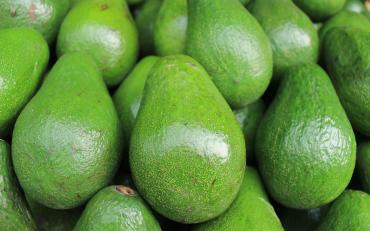With their climate smart avocado, beans and bees project, Birk Agri Company is the winner of the Mobilising More 4 Climate (MoMo) Tanzania Challenge 2019. With this project they contribute to climate adaptation and mitigation in Tanzania.
Birk Agri Company proposes an innovative combination of bee keeping with the production of beans and avocado. This inclusive economic activity in the Tanzanian southern highland region of Iringa contributes to food productivity, reversing loss of natural resources and climate mitigation action.
“Apart from the obvious advantages of the avocado (as tree) to the environment, the benefits of bees are apparent in enhancing food productivity through pollination,” Shukrani Biseko, co-founder and director of Birk Agri, explains. “Approximately one third of all food is dependent on pollination. Therefore, this soilless nursery innovation will minimise the amount of polybags used by many tree and avocado nursery operators and consume significantly less water.”
Boosting local climate adaptation
MoMo4Climate is a competition for business models that contribute to climate mitigation or adaptation in developing countries. In competition in Tanzania was developed by IUCN NL in partnership with the SAGCOT Centre and the Netherlands Embassy in Tanzania. These three parties brought together groundbreaking local climate business cases to boost sustainable entrepreneurship and climate adaptation in Tanzania.
During the finals of the MoMo Tanzania Challenge at the SAGCOT Centre in Dar es Salaam on 5 March, five finalists pitched their innovative business proposal to a live audience. On behalf of the jury panel, Romie Goedicke, Senior Expert Green Economy at IUCN NL, states: “Birk Agri was chosen as a winner based partly on the vote of the public, but also because it combines a number of benefits such as trees and soil fertility, a clear business case and strong team.”
Catalysing green investments
The winning proposal was granted an award of € 25,000 starting capital for market research and to improve the business plan. Moreover, Birk Agri Company will use the sum to establish a soilless nursery of at least 5,000 seedlings and to expand the plantation and bee keeping by at least 50 acres. Besides the financial support, Birk Agri will be provided with the expert advice and network of the SAGCOT Centre.
"The SAGCOT Centre aims to catalyse responsible and inclusive agricultural investments in Tanzania's Southern Corridor. To this regard, we promote sustainable entrepreneurship in Tanzania and recognise the highly added value of the MoMo 4 Climate challenge in this region,” says Mr. Kirenga, CEO of the SAGCOT Centre. “This competition resulted in ambitious agricultural climate proposals that were strengthened by coaching on business case development and all stand a great chance for success. MoMo Tanzania is another milestone for a commercially viable and sustainable agriculture sector in Tanzania."
Climate adaptation and mitigation
MoMo Tanzania received 50 high-quality proposals, all of which aim to achieve impact on climate adaptation or mitigation in the land use sector, agriculture, water, forestry, recycling, waste management or nature conservation. An expert panel of Tanzanian and Dutch experts assessed the proposals.
“We can only combat climate change by bringing together all stakeholders and by mentoring and grooming business cases that can ensure more capital is flowing to support sustainable landscape development that meets the demand of all stakeholders,” says Goedicke on behalf of the jury.
First published on 7 March 2019 on www.iucn.nl
Written by: Fanny Verkuijlen, Green Economy Expert at IUCN Netherlands Committee
MoMo 4 Climate is an initiative of the Dutch National Committee of the International Union for Conservation of Nature (IUCN NL) and the Dutch Ministry of Foreign Affairs. In Tanzania, the initiative is embedded in the SUSTAIN Africa programme, which is coordinated by the IUCN Global Water Programme and works to facilitate inclusive and climate resilient green growth.
